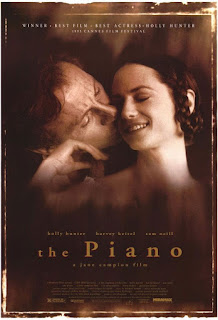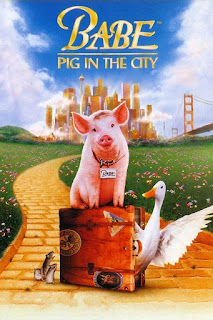August 12th: TOUKI BOUKI (Djibril Diop Mambety, 1973)
NOTE: This film will be shown in the high-defintiion Blu-ray format.
A cowherder meets a student and the couple hatch elaborate plans to earn enough money to travel to Paris.
Senegal's small film industry did not begin until the mid-1950s, right before the country achieved independence after several hundred years of French rule. While the prolific writer-director Ousmane Sembene was the country's best-known filmmaker, the 1970s saw the emergence of Djibril Diop Mambety, whose French New Wave-influenced works pushed the boundaries of cinematic expression in Africa.
Mambetty, a former drama student and actor who was kicked out of a theatre company, plunged right into filmmaking with no training. After two acclaimed short films he made his debut feature Touki Bouki (The Hyena's Journey) for just $30,000, with partial government funding.
While Mabety's film contains political and social commentary like those of his peers, it marks a significant departure stylistically. Vigorous camerawork, fast-paced editing techniques, non-linear narrative, and the dissonance between sounds and music of different cultures show not only a kinship with the New Wave in Europe but a fresh, unique voice.
Thematically, Mambety also sets himself apart by not focusing solely on the effect of French occupation or native African culture, but exploring the hybrid of the two worlds that he believed the current generation could identify with most. The dialogue was recorded in Wolof, Senegal's most widely-spoken language, with some French and Arabic peppered throughout.
The film was released to much acclaim, winning awards at both the Cannes and Moscow film festivals. Mambety became an overnight sensation and a major influence in African cinema, though before his death in 1998 he only completed one more feature and several shorts.
In 2007, Martin Scorsese created the World Cinema Foundation to preserve and restore important films, with a board of advisors made up of international filmmakers and historians. Touki Bouki is part of a collection released on home video by Criterion to promote and distribute the work of the organization. In 2010, Empire magazine ranked it #52 on a list of 100 Best Films Of World Cinema.
Running time is approx. 90 minutes.
A cowherder meets a student and the couple hatch elaborate plans to earn enough money to travel to Paris.
Senegal's small film industry did not begin until the mid-1950s, right before the country achieved independence after several hundred years of French rule. While the prolific writer-director Ousmane Sembene was the country's best-known filmmaker, the 1970s saw the emergence of Djibril Diop Mambety, whose French New Wave-influenced works pushed the boundaries of cinematic expression in Africa.
Mambetty, a former drama student and actor who was kicked out of a theatre company, plunged right into filmmaking with no training. After two acclaimed short films he made his debut feature Touki Bouki (The Hyena's Journey) for just $30,000, with partial government funding.
While Mabety's film contains political and social commentary like those of his peers, it marks a significant departure stylistically. Vigorous camerawork, fast-paced editing techniques, non-linear narrative, and the dissonance between sounds and music of different cultures show not only a kinship with the New Wave in Europe but a fresh, unique voice.
Thematically, Mambety also sets himself apart by not focusing solely on the effect of French occupation or native African culture, but exploring the hybrid of the two worlds that he believed the current generation could identify with most. The dialogue was recorded in Wolof, Senegal's most widely-spoken language, with some French and Arabic peppered throughout.
The film was released to much acclaim, winning awards at both the Cannes and Moscow film festivals. Mambety became an overnight sensation and a major influence in African cinema, though before his death in 1998 he only completed one more feature and several shorts.
In 2007, Martin Scorsese created the World Cinema Foundation to preserve and restore important films, with a board of advisors made up of international filmmakers and historians. Touki Bouki is part of a collection released on home video by Criterion to promote and distribute the work of the organization. In 2010, Empire magazine ranked it #52 on a list of 100 Best Films Of World Cinema.
Running time is approx. 90 minutes.










Comments
Post a Comment